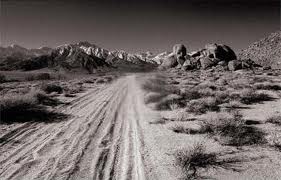One note of housekeeping. Chapter 5 was so uneventful and predictable I didn't bother writing a blog on it. Also, I'm reading several books right now. Some, like Bell's book are religious in nature. Some, like Douglas Coupland, are also religious in nature, but not in a way you might expect. So, I've been sidetracked a little. Oh and Easter happened. Enough excuses.
Rob Bell says that the only way to salvation is through Jesus (154). Pretty traditional stuff. Nobody, not even John Piper or the Graham clan, could refute that. What Bell then does, is take an Evangelilcal's preconceived idea of this salvation and this Jesus and blow it wide open. After reading this chapter I wasn't surprised that he has gotten so much heat from the mainly republican, right-wing, evangelical, American-centric form of Christianity that seems to dominate the media, politics, and airwaves in America. Allow me to explain....
First, Bell says that "as obvious as it is, then, Jesus is bigger than any one religion. He didn’t come to start a new religion…and he continually transcends whatever labels and cages we create to contain him, especially the one called “Christianity”. He continues, "Jesus takes his role of redemption seriously; rescuing not just everything, but everybody"(150-151).
I can sense the critics getting ready to pounce at this point. They have their charges of "universalism" all loaded up. They are ready to claim that Bell is saying that anybody can get in, that you don't have to be a Christian to get into heaven. That Buddhists and Muslims can go. Why not just say "any path that gets you there works?"
Bell answers. "What Jesus does not claim is that any path is good as long as it leads to heaven, nor that a certain people group or religious group gets to define who gets in and who doesn’t. What Jesus does claim is that he alone is saving everybody. This leaves the door wide open. He is, at the same time, both as narrow as himself and as wide as the universe (154-155).
He then goes on to, in my opinion, skewer the American-centric Evangelical Right. He says "when people use the word “Jesus” it is important to ask who they are talking about. Are they referring to a token of tribal membership, a tamed, domesticated Jesus who waves the flag and promotes whatever values they decided their nation needs to return to? Are they referring to the logo or slogan of their political, economic, or military system through which they sanctify their greed and lust for power? Or are they referring to the very life source of the universe who walked among us and continues to sustain everything with his love and power and grace and energy (156). This is perhaps, my favourite paragraph in the entire book.
If we (and I say this to everyone, not just the right) can see past our own ideas of who Jesus is and if we can stop trying to be God, judging who gets in and who doesn't, based on our own interpretations of the Bible, we might just be able to see that God is bigger than we are and salvation is bigger than we could imagine.
Bell's last words in this chapter are cautionary.
"It is our responsibility to be extremely careful about making negative, decisive, lasting judgments about people’s eternal destines. Jesus said he didn’t come to judge the world but to save it." Maybe we should be more concerned with saving the world too, rather than judging it...or judging Rob Bell.
